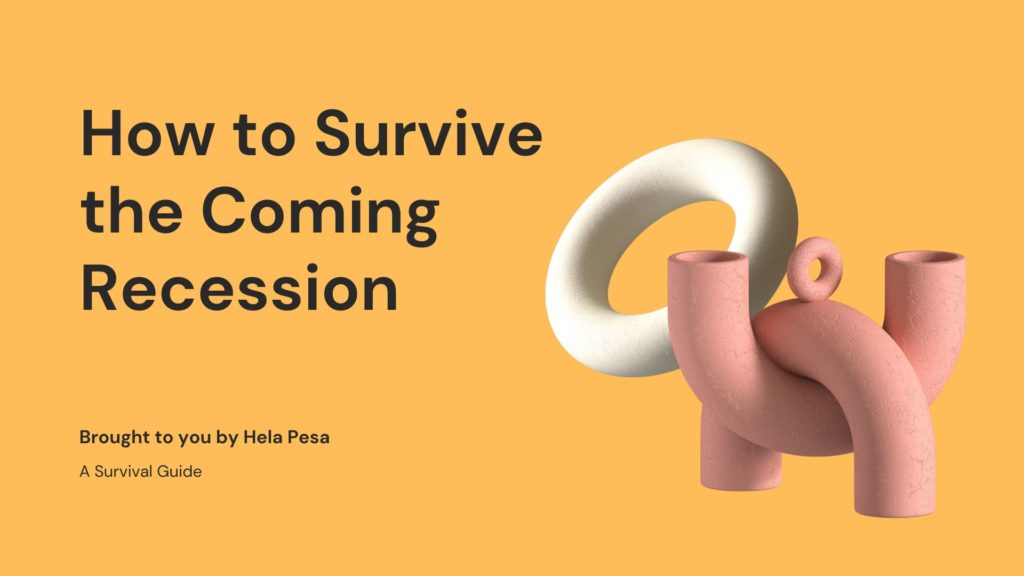Have you ever been in a tight position? A very tight position? A very tight position where nobody is willing to lend you money yet you need it more than the oxygen that’s keeping you alive? Well, if you have then you wouldn’t be the first. Or the last. People and institutions, contrary to popular opinion, do not lend money. Instead, they lend trust in the form of loans. And as we know, trust is the foundation of business.
When you default on your loan, whether given by an institution or an individual, you do not just fail to pay what you owe but you send beacons pointing to your lack of trust. And there is not enough trust to go around. This is why it becomes extremely difficult to be able to borrow again once you default. Rebuilding that trust once shattered is an expensive endeavour that few, if any, are willing to take.
A pro borrower, therefore, takes in this information and comes to the understanding that loans are more than just monetary, they’re emotional. When pro borrowers take loans, they know that they are dealing with individuals. People have feelings and egos, and when they approve loans, they stick out their necks. Defaulting is akin to messing with their emotions. Humans hate it when people mess with their emotions.
To be a pro borrower, therefore, means that you must understand what makes people tick. To do that:
You must cultivate good relations with your lender(s)
The relationship between a borrower and a lender can be either one-to-one or one-to-many. A one-to-one relationship refers to where a borrower, in this case, you, only deals with one lender for your loan needs while a one-to-many relationship is where you borrow from several lenders simultaneously. Both have their pros and cons. Sometimes, current prevailing economic conditions force people to lean towards a one-to-many kind of relationship.
A pro borrower, however, understands that the type of relationship is insignificant. A pro borrower understands that a relationship between them and a lender must be underwritten by trust and loyalty. What drives a relationship is more important than what kind of relationship it is. A good relationship provides numerous advantages compared to a cold walk-in customer. For example, if you cultivate better relationships with your lenders, then you might have lenient repayment options compared to ones who don’t cultivate good relationships.
It’s therefore crucial as a pro borrower, that you maintain good relations with your lender. It’s a great asset to have.
You must have a repayment plan
This applies to both loans given by either financial institutions of friends and family. As a pro borrower, you must have at least a basic understanding of financial management. Managing your finances successfully provides you with an opportunity to know how and when you’ll need to repay what you’ve borrowed.
It’s even more crucial that you do this for informal loans, that is the ones provided by family. Financial institutions provide a framework on which a payment plan hangs that you must adhere, failure to which measures might be instituted against you. These payment plans act as a guardrail, preventing you from falling into default. Informal loans do not have recovery measures.
However, one thing that family loans have is the far-reaching consequences of broken trust. When you do not repay your loans, you risk being the black sheep; an untouchable that no one wants to associate. Thus, before you borrow, ensure that you have a plan to repay it.
Having a repayment plan, especially a written one ensures that you project yourself as one who understands themselves and thus knows what they’re doing.
You must make payments on time
Like Esau and his brother Jacob, paying your loans on time is the twin brother of having a repayment plan. The latter clutching the heels of the former. An elaborate payment plan is not worth the effort put into it if the plan does not translate into timely payments. A pro borrower understands that they do not just pay they pay on time.
Making payments on time reinforces the idea that people can stick out their necks without losing them. It goes on to show that you are someone who can be trusted because paying loans is not just about money. On the face of it, yes, it’s about money. But if you dig a little deeper, you’ll realize that it’s about character. A good name opens doors that money can only dream of. Make sure you pay on time.
You must only borrow what you need
A sudden influx of cash is a wet dream for broke people. But, unless that influx (read loan) is to start or boost a business, buy a house or attend a pressing emergency, forget about it. Borrowing for non-issues like throwing a lavish party or going on a trip should be an economic no-no. I suggest that you find yourself a Jesuit and exorcize their demonic thoughts. Life is short, and you should do things that crinkle your face in unfathomable joy. But if those crinkles are going to land you in bad debts that might ruin you, forget them.
Borrowing for consumption is expensive, emotionally and financially. This is further made worse by borrowing for intangible things i.e., things that you cannot see. This will entangle you in a cycle of debt from which extricating yourself might take a toll on your well-being.
As a pro borrower, you must understand why you borrow. You must question yourself at length and, if you find out that you can do without some things and not severely jeopardize your life, then by all means stay away. You must have a keen understanding of your financial position and only change that position to borrow only if it’s necessary.
A pro borrower, therefore, is one who not only understands themselves but also does so on a deeper level. To be a pro borrower, you must strive to build and foster trust in yourself. It means that you must be aware of where who you are and what you need intersect and how you can leverage that intersection to make your life meaningful when it comes to loans.


